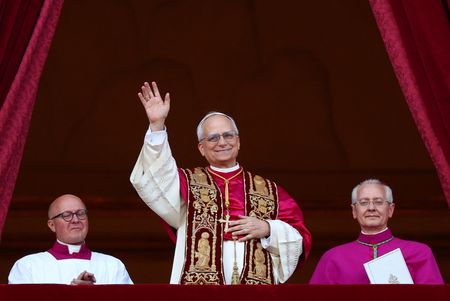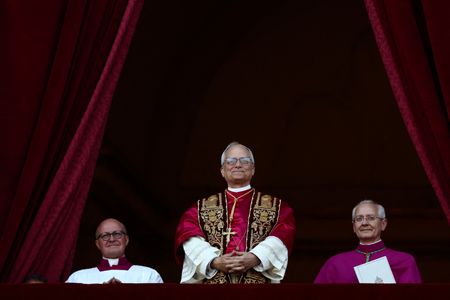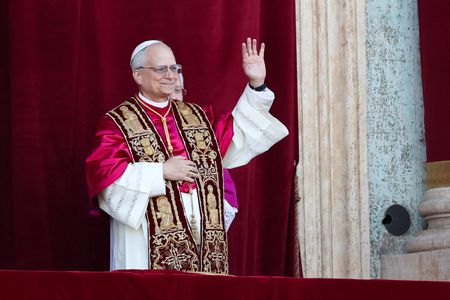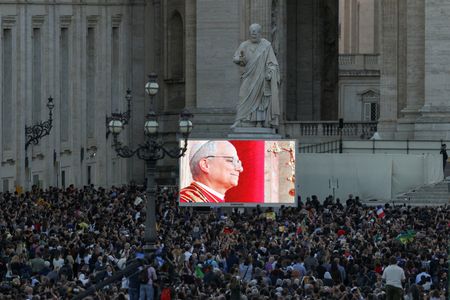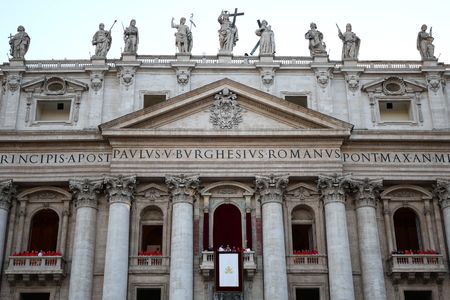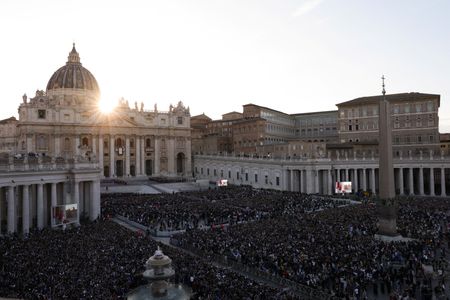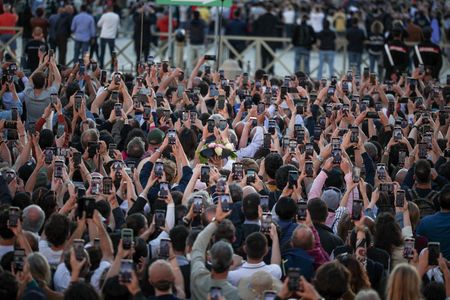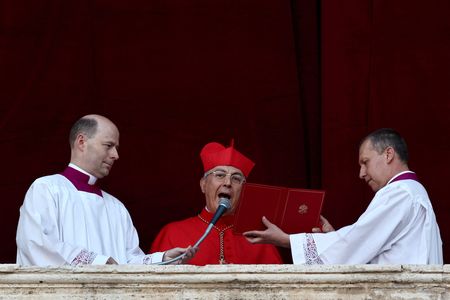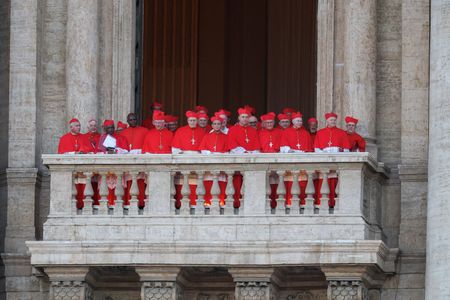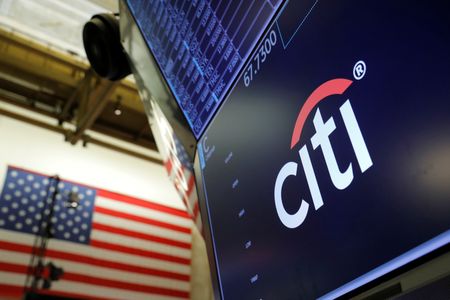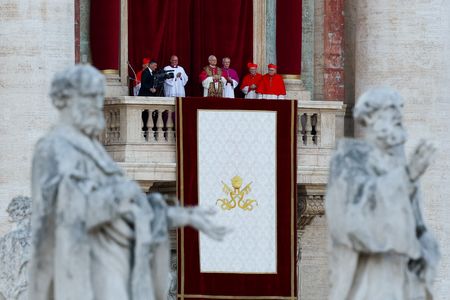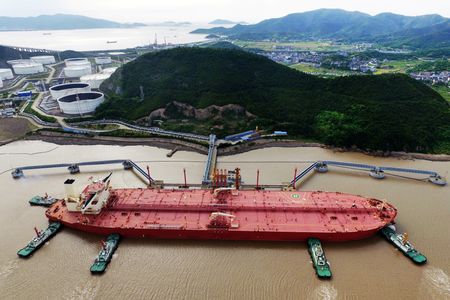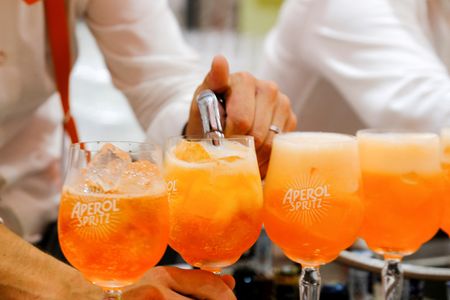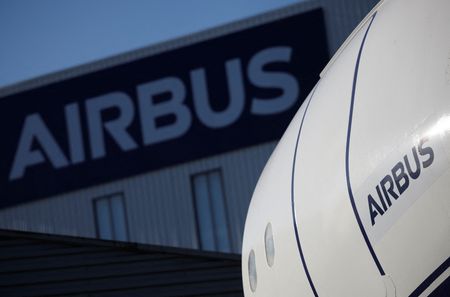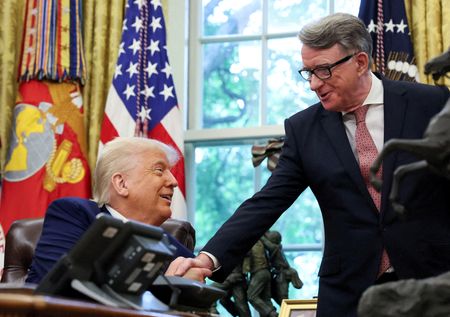By Joshua McElwee, Crispian Balmer and Philip Pullella
VATICAN CITY (Reuters) -Cardinal Robert Prevost, a little known missionary from Chicago, was elected in a surprise choice to be the new leader of the Catholic Church on Thursday, becoming the first U.S. pope and taking the name Leo XIV.
Pope Leo appeared on the central balcony of St. Peter’s Basilica after white smoke had billowed from a chimney atop the Sistine Chapel signifying the 133 cardinal electors had chosen a new leader for the 1.4 billion-member Catholic Church.
“Peace be with you all,” he told the cheering crowd, speaking in fluent Italian. He also spoke in Spanish during his brief address but did not say anything in English.
Prevost, 69 and originally from Chicago, has spent most of his career as a missionary in Peru and has dual Peruvian nationality. He became a cardinal only in 2023. He has given few media interviews and rarely speaks in public.
President Donald Trump swiftly congratulated Prevost on becoming the first U.S. pope. “What excitement, and what a Great Honor for our Country. I look forward to meeting Pope Leo XIV. It will be a very meaningful moment!”
Prevost becomes the 267th Catholic pope after the death last month of Pope Francis, who was the first Latin American pope and had led the Church for 12 years.
Francis had widely sought to open the staid institution up to the modern world, enacting a range of reforms and allowing debate on divisive issues such as women’s ordination and better inclusion of LGBT Catholics.
Leo thanked Francis in his speech and repeated his predecessor’s call for a Church that is engaged with the modern world and “is always looking for peace, charity and being close to people, especially those who are suffering”.
He had not been seen as a frontrunner and there was a brief moment of silence when his name was announced to the packed St. Peter’s Square, before people started to clap and cheer.
“I’m just thrilled. I hope this can bring to America a more loving community. I think there’s a lot of hate in America. I think there’s a lot of racism. I have experienced it,” said Lailah Brown, 28, from Seattle, Washington, an African American.
“I hope America does not embarrass the pope,” he said.
Ahead of the conclave, some cardinals called for continuity with Francis’ vision of greater openness and reform, while others said they wanted to turn back the clock and embrace old traditions.
Unlike Francis, who spurned much of the trappings of the papacy from the day he was elected in 2013, Prevost wore a traditional red papal garment over his white cassock.
A crowd of clergy and staff members at Chicago’s Catholic Theological Union erupted in a joyful cheer as Pope Leo walked out onto the Vatican balcony, some four decades after he graduated from the South Side school.
It was an “explosion of excitement and cheers that went up in the room … many of us were just simply incredulous and just couldn’t even find words to express our delight, our pride,” said Sister Barbara Reid, president of the theology school.
Pope Leo graduated from the school in 1982 with a master’s degree. Reid called Leo intellectually brilliant, saying he has an extraordinarily compassionate heart.
“It’s an unusual blend that makes him a leader who can think critically, but listens to the cries of the poorest, and always has in mind those who are most needy,” she said.
THE NAME LEO
The last pope to take the name Leo led the Church from 1878-1903. Leo XIII was known for his devoted focus to social justice issues, and is often credited with laying the foundation for modern Catholic social teaching.
Spanish Prime Minister Pedro Sanchez was among world leaders congratulating the new pope.
“May his pontificate contribute to strengthening dialogue and the defense of human rights in a world in need of hope and unity,” Sanchez said.
Prevost has attracted interest from his peers because of his quiet style and support for Francis, especially his commitment to social justice issues.
Prevost served as a bishop in Chiclayo, in northwestern Peru, from 2015 to 2023.
Francis brought him to Rome that year to head the Vatican office in charge of choosing which priests should serve as Catholic bishops across the globe, meaning he has had a hand in selecting many of the world’s bishops.
“Most of us thought a U.S. cardinal would never become pope, but Prevost got strong support from cardinals from Latin America where he worked for 20 years,” said Rev. Thomas Reese, a Jesuit commentator who has covered the Vatican for decades.
“He is multilingual and has a reputation as a listener,” said Reese. “The Holy Spirit continues to surprise us.”
(Reporting by Joshua McElwee, Crispian Balmer, Philip Pullella and Alvise ArmelliniAdditional reporting by Cristina Carlevaro and Brendan O’BrienEditing by Keith Weir and Frances Kerry)


